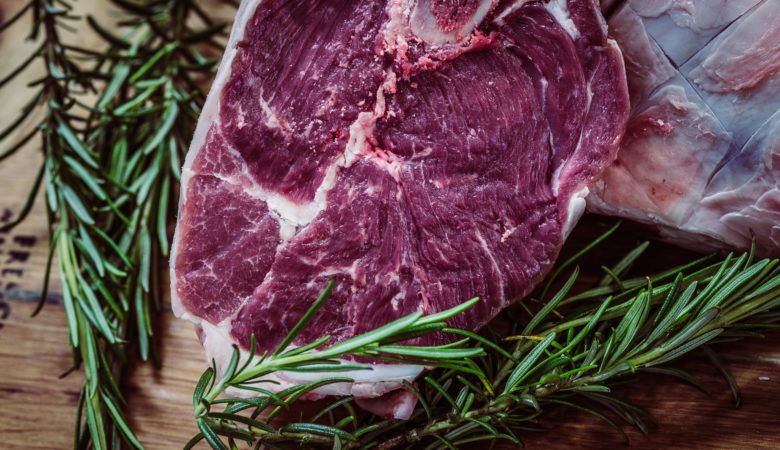The Switch to Cultured Meat Could Change Environmental Impacts in a Major Way

If you’ve been reading the news lately, you’ve probably seen the brouhaha that ensued when people mistakenly believed that President Biden was going to limit the country’s meat consumption. While that’s not true—at least, there’s no evidence to suggest it will happen or that the President is even considering it—it’s long been known that raising cows and eating red meat has a major impact on the environment. That’s a tough situation if you’re both environmentally conscious and a big fan of delicious steaks.
Could “cultured” meat cut down on emissions and help save the planet? Hold onto your Impossible burger and read on.
Global warming and meat consumption
According to Food Research International, our global meat consumption has increased exponentially since the 1960s and especially from 1980-present. Today, “up to 23% of the total greenhouse gas emissions (GHG) are derived from the agriculture, forestry and other land uses, which are among the major contributors to the global warming (IPCC, 2019),” and about 12 to 18 percent of total greenhouse gas emissions come from the livestock industry alone.
That’s a significant portion of global emissions, especially when you consider that the total includes emissions from cars, planes and industrial manufacturing. Plus, raising livestock has a heavy impact on water scarcity and water pollution. In other words, that juicy hamburger or fried chicken has a larger cost than what you pay per pound.
On the other hand, it’s no secret that people love eating meat—and it contains plenty of nutrients, too. If you’re not already a vegetarian or vegan, you might be reluctant to give up your meat. Some people even think #MeatlessMonday is asking too much. What can you do when you want the best of both worlds?
Swapping meat for cultured meat
Like “fetch,” many people have their doubts about whether we can make cultured meat happen. While the Impossible brand has made synthetic, plant-based meat more popular—even among meat-eaters—there are plenty of people who flat-out refuse to entertain the idea. However, it could make a significant impact on global greenhouse gas emissions.
Bill Gates has recently suggested that the richest countries on the planet should start the switch to synthetic meat—at least in place of red meat. To many people, that’s absolute anathema—but plant-based or lab-grown meat might be the way to go. After all, he says, “You can get used to the taste difference, and the claim is they’re going to make it taste even better over time. Eventually, that green premium is modest enough that you can sort of change the [behavior of] people or use regulation to totally shift the demand.”
Why the divide between rich and poor countries? Poorer countries may not have the resources to adopt cultured or synthetic meat. Gates went on the record saying that “we’ll have to use animal genetics to dramatically raise the amount of beef per emissions for [poor countries].” Ironically, America’s livestock production is so efficient that the emissions per pound of beef are much less than they are in Africa.
Meat isn’t going away… yet
If you’re clutching your ribeye in horror, we don’t blame you. Even if you’re perfectly happy eating meatless dishes most of the time, it’s unsettling to think that a mainstay of American cuisine might be switched out for something that, well, just isn’t the same. Impossible burgers mimic ground beef well enough, but most meat-eaters would probably pick the real thing—and not just because Impossible meats are quite a bit more expensive than real meat.
On the other hand, the environment is important, too. Greenhouse gas emissions are contributing to global warming, which leads to long-term climate change. Could you give up your favorite red meat dishes if it meant the polar ice caps stay intact? Depending on how governments around the world address climate change, we might have to answer that question sooner rather than later.
Here’s the good news: experts have predicted that by 2040, most meat is going to come from lab grown or alternative sources. And while it’s more expensive than real meat now, we can expect the prices to go down as it gains in popularity. If Gates is to be believed, it’ll taste better by then, too.
You’ll probably never have to give up red meat completely—but it’s never a bad idea to seek out meatless or alternative dishes every once in a while. Whether it’s to prepare for a post-apocalyptic no-meat future or you just want to reduce red meat demand, you might find that it’s easier to live without than you thought.

